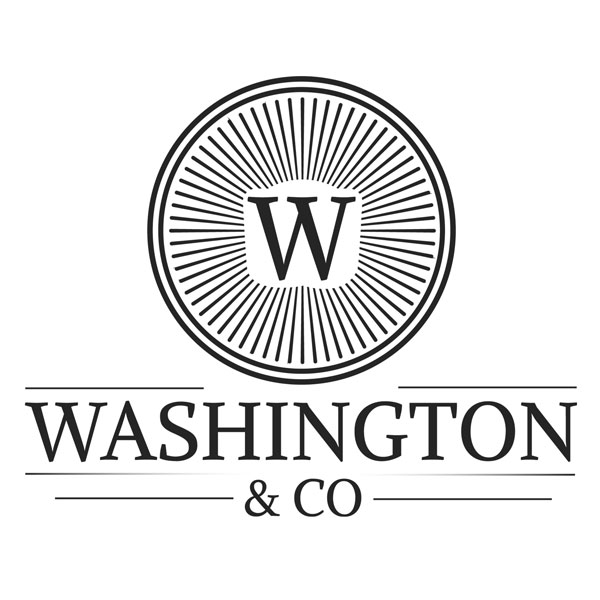Introduction
Many business owners leave money on the table by missing out on valuable tax deductions. Whether it’s a lack of awareness or poor documentation, failing to claim these deductions can lead to overpaying your taxes. At Washington & Co Inc., we ensure you’re taking full advantage of every deduction available to your business, helping you reduce your taxable income and keep more of your hard-earned money.
In this post, we’ll explore five commonly overlooked business deductions and how you can start claiming them.
1. The Home Office Deduction
If you use part of your home exclusively for business, you may qualify for the home office deduction. This deduction applies to both homeowners and renters and allows you to deduct a portion of expenses such as:
- Rent or mortgage interest
- Utilities (electricity, water, internet)
- Property taxes
- Home insurance
How to Qualify
To qualify, your home office must be used:
- Exclusively for business purposes (no personal use).
- Regularly as your principal place of business or for meetings with clients.
The IRS offers a simplified method for calculating this deduction: $5 per square foot of office space, up to 300 square feet. Alternatively, you can calculate the actual percentage of your home expenses attributed to your office.
2. Business Use of Your Personal Vehicle
If you use your personal vehicle for business purposes, you can deduct the costs associated with its use. This deduction applies whether you’re driving to meet clients, deliver goods, or attend business events.
Two Methods for Claiming
- Standard Mileage Rate: For 2025, the IRS allows you to deduct 65.5 cents per mile driven for business purposes.
- Actual Expenses: Deduct the actual costs of fuel, insurance, maintenance, repairs, and depreciation for the portion of vehicle use that’s business-related.
How to Track
Keep detailed records of your mileage, including:
- Date and purpose of each trip
- Miles driven
- Starting and ending odometer readings
Using apps or mileage trackers makes it easy to stay organized and compliant.
3. Education and Training Expenses
Investing in your professional development or your employees’ skills is not only good for business—it’s also tax-deductible. Educational expenses that are directly related to improving your business or maintaining your professional skills can be claimed as a deduction.
Examples of Deductible Education Costs
- Workshops, seminars, and conferences
- Online courses and certification programs
- Books, subscriptions, and industry publications
- Travel expenses related to attending business training
Eligibility
The education must enhance your skills or be directly related to your current business—not for starting a new career.
4. Employee Benefits and Retirement Contributions
Providing benefits to employees is not only a way to attract and retain top talent, but it can also lower your taxable income. Business owners can deduct contributions to employee benefits programs, including:
- Health insurance premiums
- Retirement plan contributions (401(k), SEP IRA, SIMPLE IRA)
- Life insurance and disability benefits
- Fringe benefits such as wellness programs or education assistance
Bonus for Retirement Contributions
As a business owner, your own retirement contributions (like to a SEP IRA or Solo 401(k)) are also deductible, reducing both business and personal tax liabilities. For 2025, the contribution limits have increased, so maximizing these contributions is a win-win for savings now and in the future.
5. Startup and Organizational Costs
If you recently started a business, you may not realize that many of your startup costs are deductible. These include expenses incurred before your business officially began operating, such as:
- Market research and feasibility studies
- Legal and professional fees for business formation
- Advertising to launch your business
- Training costs for new employees
How It Works
The IRS allows you to deduct up to $5,000 in startup costs and $5,000 in organizational costs in your first year of operation. The remaining expenses must be amortized (spread out) over 15 years.
Tracking and documenting these expenses early on ensures you don’t miss out on valuable deductions during your business’s critical first year.
How to Ensure You Don’t Miss These Deductions
Missing out on business deductions often comes down to a lack of documentation or poor planning. To maximize your tax savings, follow these steps:
- Keep Detailed Records: Use accounting software or apps to track expenses in real time.
- Separate Personal and Business Finances: Always maintain a separate business bank account and credit card to avoid mixing expenses.
- Consult a Tax Professional: A qualified advisor, like Washington & Co Inc., can help you identify deductions, ensure compliance, and develop a year-round tax strategy.
Why Partner with Washington & Co Inc.?
At Washington & Co Inc., we specialize in uncovering overlooked deductions that can save your business thousands of dollars. Our team:
- Review your financials to ensure you’re taking full advantage of available deductions.
- Provides proactive tax planning to identify savings opportunities year-round.
- Offers personalized guidance to help you optimize your tax strategy.
By working with us, you can rest assured that no deduction will go unnoticed, and your tax liability will be as low as legally possible.
Conclusion
Business tax deductions can add up to significant savings, but only if you take advantage of them. From the home office deduction to vehicle expenses and employee benefits, these commonly overlooked deductions can help you reduce your taxable income and keep more money in your business.
At Washington & Co Inc., we’re committed to helping you identify every deduction you’re eligible for so you can focus on what you do best—running and growing your business.
Ready to Lower Your Business’s Tax Bill?
Contact us today to schedule a consultation and ensure you’re claiming all the deductions you deserve.
